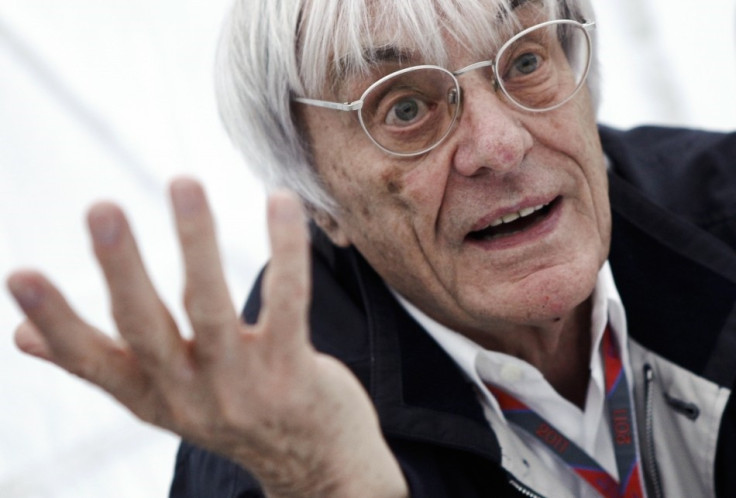Billionaire Ecclestone's F1 Empire Paid Just £1m UK Tax in 2011

Bernie Ecclestone could face the wrath of Britain's tax crusaders after it emerged his Formula One Group paid just 0.3% corporation tax on its profits in 2011.
According to a report in the Independent newspaper, Formula One Group paid only £945,663 ($1.47m, €1.1m) in corporation tax in 2011. That was despite the company making an annual profit of £305m on revenues of £980m.
This means that the company, which runs the majority of its commercial operations from the UK, paid less than £1m corporation tax on every £300 made two years ago.
The company avoided taxes legally by taking out loans from other companies in the same group. The interest payments on the loans are tax deductible, according to the country's tax code.
In 2011, Formula One had £2.5bn of "intra-group loans". The interest on the loans amounted to £387.7m in 2011 and it drastically reduces the tax bill of the UK-based Formula One group of companies. Many of the companies showed a loss after the interest payment.
The tax arrangements were revealed in the prospectus for the planned floatation of the company on the Singapore Stock exchange, the Independent noted.
"We have an efficient tax position. We expect our aggregate cash tax payments to remain broadly consistent with prior years," the company said in its prospectus.
"The group's tax charge is materially dependent on the amount of UK tax relief available to it for interest expense on certain intra-group loans. The amount of such relief is limited to the 'arm's length' amount of interest, which can be a subjective matter."
The company has made a complex arrangement with the UK's tax authority, HM Revenue and Customs (HMRC), which applies until 31 December 2017.
'Broken Tax Code'
News about Formula One's tax bill follows similar revelations about Google and Starbucks, which have been heavily criticised for paying only a tiny fraction of their UK earnings in tax.
Both companies pointed out that the tax schemes they are using are legal and they have the duty to minimise their tax bills for shareholders.
A meeting by finance ministers from the G20 group of leading nations ahead of a summit in Russia earlier backed plans to tackle international tax avoidance and evasion.
The group plans to enact automatic exchange of tax information between countries. It also backed plans by the Organisation for Economic Cooperation and Development (OECD) to stop firms moving their profits across borders to avoid taxes.
The issue has also sparked huge protests in Britain, led by action group UK Uncut, whose spokesman Tim Street said "big businesses, corporations and rich individuals can avoid tax on an industrial scale. The Government needs to take action in the UK to stop this."
The country should also simplify its tax code, as it is highly complex for the public to understand, according to protest groups.
"It's vital that the politicians who created our broken tax code now drastically simplify and reform it so people can be assured that everyone, whether a racing boss or a coffee giant, is paying their fair share, no more and no less," said Matthew Sinclair, chief executive of the TaxPayers' Alliance.
© Copyright IBTimes 2025. All rights reserved.






















